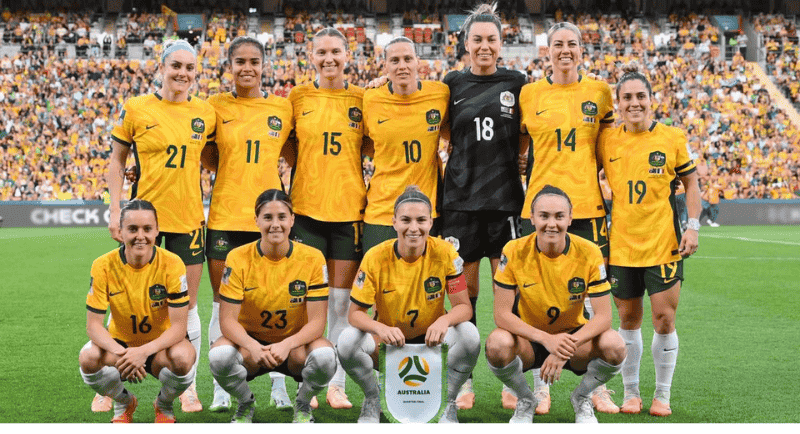Paramount ANZ has been reportedly poised on the brink of signing a new TV deal for the Matildas.
The deal is speculated to be worth $200m, double the previous deal of $100m. Is that deal still worth $200m post-Paris 2024? This is just one, and perhaps the smallest, of a number of sports rights deals that have been signed that see sporting bodies reaping massive paydays.
Broadcasters have long seen live sports as the one surefire magnet for viewers. So much so that increasing amounts of budgets are being dropped on securing sports, often at the cost of other programming. However, that in itself is a story for another day.
Rupert Murdoch pioneered huge sports rights offers that shook up the broadcast market and were transformative for the broadcaster. His British football bid, with guidance from then BSkyB boss Sam Chisholm, won the rights to live Premier League football in a £304m five-year deal when the Premier League launched in 1992. It was seen as putting the subscription service on the map. (The recently completed deal for Premier League – four years starting 2025-26 – was worth £6.7b.)
A year later, Murdoch’s 1993 bid for NFL rights saw David Hill riding shotgun. Murdoch’s Fox Network easily outbid incumbent CBS for a rights package with a US$1.58b offer across four years. The amount was US$500m more than CBS had paid under their existing deal.
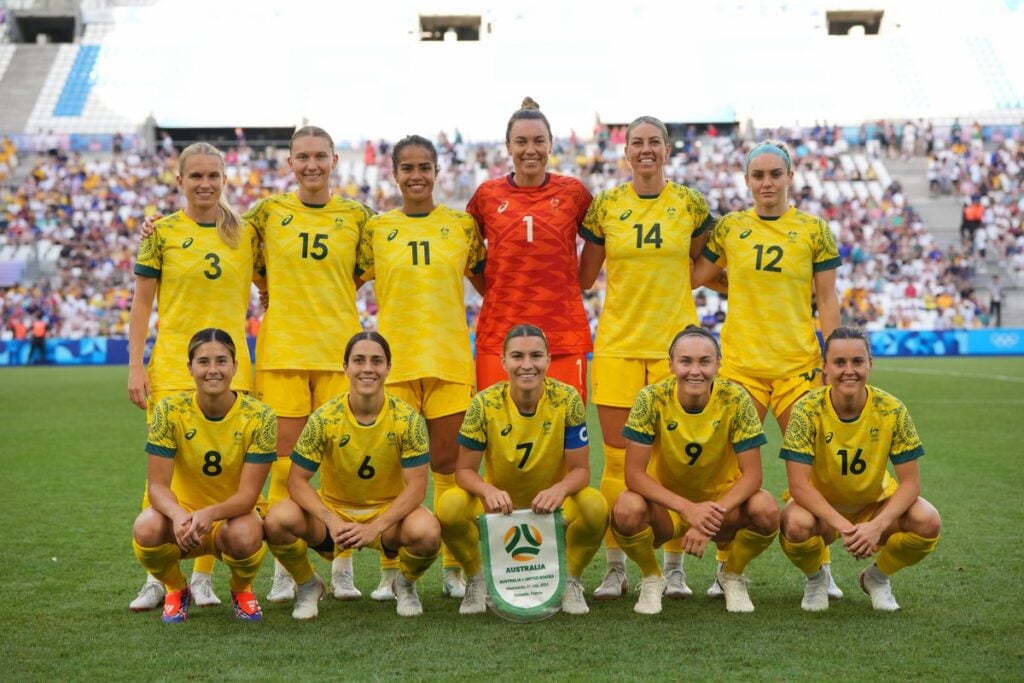
Matildas starting 11 for the USA game in Paris.
Top: Matildas at the 2023 World Cup
What the Matildas mean to 10
It’s hard to see that the doubling of the cost for the Australian women’s soccer team will be a game changer for 10 and Paramount+. There’s not a lot on offer. Click on the fixtures tab on the Matildas page at Soccer Australia and you get the message “No upcoming fixtures found”. The new deal would include the 2026 Women’s Asian Cup and 2027 Women’s World Cup in Brazil.
What it does do is give 10 and Paramount+ international premium sport with an Australian presence. And it supplements other packages of football that Paramount ANZ has – from the FA Cup to the A-League.
The bidder for Matildas’ matches could rethink the deal after the team that finished fourth in the World Cup in 2023 failed to make the Paris Olympics quarter-finals. Of the 12 teams in competition, eight made it to the next round. Australia wasn’t one of them. It is also now without a head coach.
Australians can be harsh judges when a team fails to live up to expectations – at the Olympics or in other competition. In the Matildas’ case the re-evaluation seems justified.
Daily Telegraph columnist and former Socceroo Robbie Slater was consistent with his recent reviews. “An unmitigated disaster” was how he started one of his post-Games summaries.
10 possibly needs to pay above the odds for forthcoming matches though, given the lack of other options with all the major sports tied up in long-term deals elsewhere.
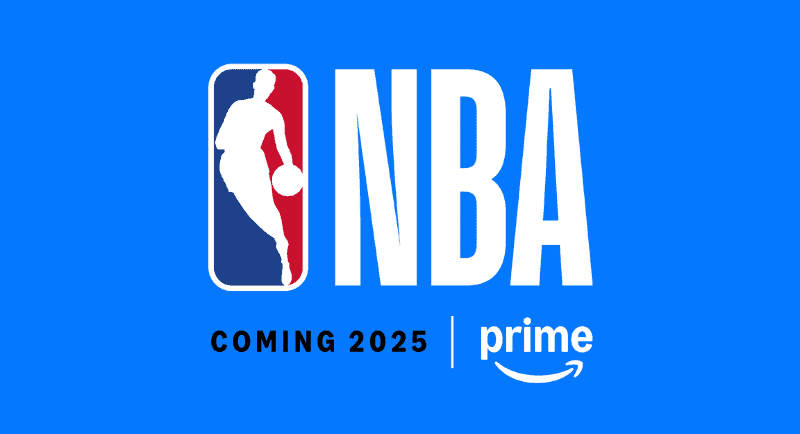
Other recent deals that have set new records
NBA deal: NBC has burst back onto the scene as a broadcaster of basketball after a long absence. The NBA recently announced Disney, Comcast (NBC owner) and Amazon will pay US $77 billion over the next 11 years. More than doubling the prices paid in the previous deal. That locked current rights holder Warner Bros Discovery (WBD) out of the deal and triggered a court challenge. WBD claims to have triggered the clause that allows it to match the winning bid. The NBA claims what they offered didn’t match the offer. The package that WBD is arguing over has been sold to Amazon. What the new deal does is give the NBA a lot more money, and NBC and Amazon get sports that round out their offerings to subscribers.
See also: Prime Video, NBA, and WNBA enter 11-year global media rights agreement
English football: Last December the Premier League agreed a new deal with Sky and TNT Sports worth £6.7b for four years of UK TV rights. It didn’t bring in a lot more money, with the Premier League deciding to work again with “trusted broadcast partners”. What was interesting was the Sky deal with the English Football League for coverage of teams playing in the second, third and fourth tiers of English football. Sky’s former deal was £119m annually for 243 matches in those lower leagues. Its new deal, which starts on Friday night this week, sees it paying £187m a year for over 1,000 games. While it secures Sky an incredible amount of football, it is being called transformative for the clubs which will receive between £2m to £200,000 additional each annually.
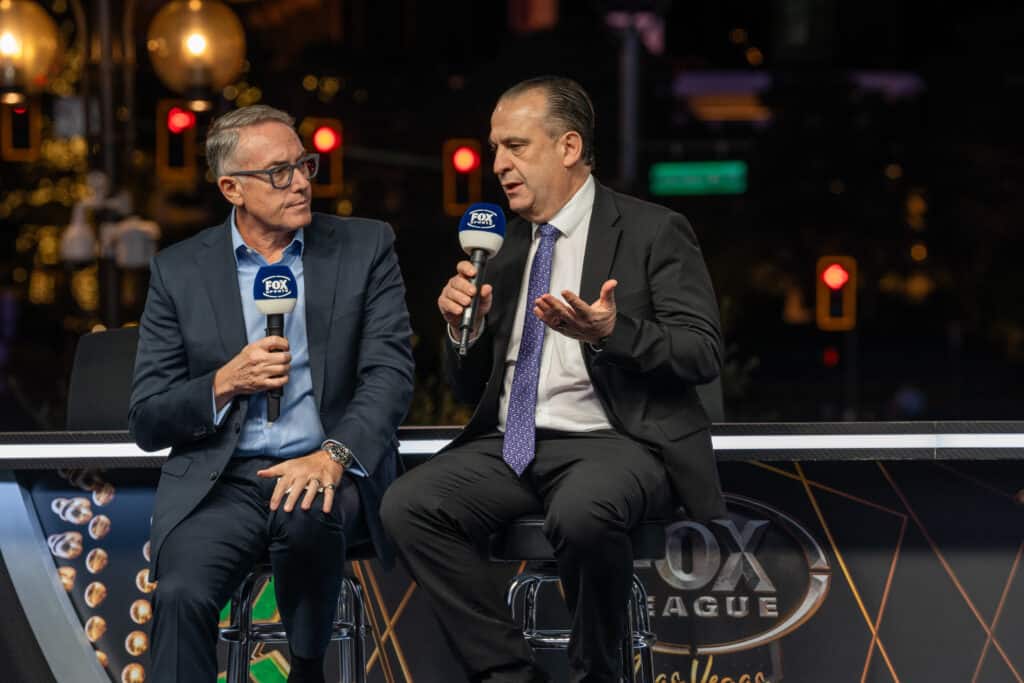
Patrick Delany and Peter V’landys in Las Vegas this year
NRL and AFL opportunities
Although the NRL has a deal with its broadcaster partners through until the end of 2027, it is reportedly sharpening the pencil of what it might be looking for in its next deal. Chis Barratt recently reported the NRL signalled to TV networks that it wants to open broadcast rights negotiations early. “[The NRL is] seizing on new anti-siphoning laws that pave the way for it to sell streaming rights to global players such as Amazon and Netflix.” Incumbent Australian rights holder Nine recently hosted League bosses Peter V’landys and Andrew Abdo in Paris to take in the Olympic Games. There’s already much speculation about what the next NRL packages might look like with potentially 10 games a week in a 20-team competition. V’Landys recently suggested the number of rounds could decrease from 24 to 19, opening up the option of a mid-season break for State of Origin.
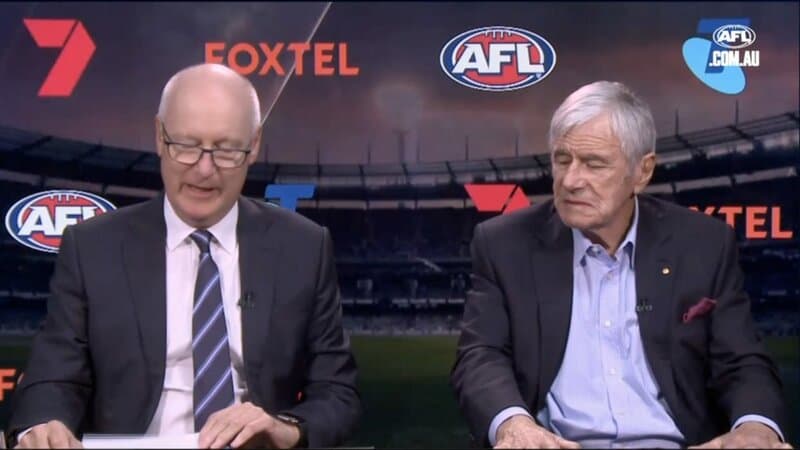
AFL chairman Richard Goyder with Seven’s Kerry Stokes
The AFL has a new rights deal that doesn’t start until the 2025 season and runs until 2031. Even in the crazy world of sports broadcast rights, it’s too early to talk about what might come next. What is interesting though is the AFL’s plan to look at potentially introducing a “wildcard weekend”. That would see the teams who finish the home and away rounds ranked 7-10 playoff in two matches for a place in the AFL Final Series. The games would be played at the end of regular games on the weekend currently free of football in late August. It is thought the AFL would have to offer this new package to existing broadcast partners, Seven and Foxtel, but it could give other hopefuls like Nine, 10 or a streaming platform, a foot in the AFL door. SEN’s Dwayne Russell suggested recently this is on for next year. Longtime wildcard advocate Craig Hutchison is being credited as one of the driving forces for the change. Hutchy suggested this week the initiative should be called The Gauntlet.
